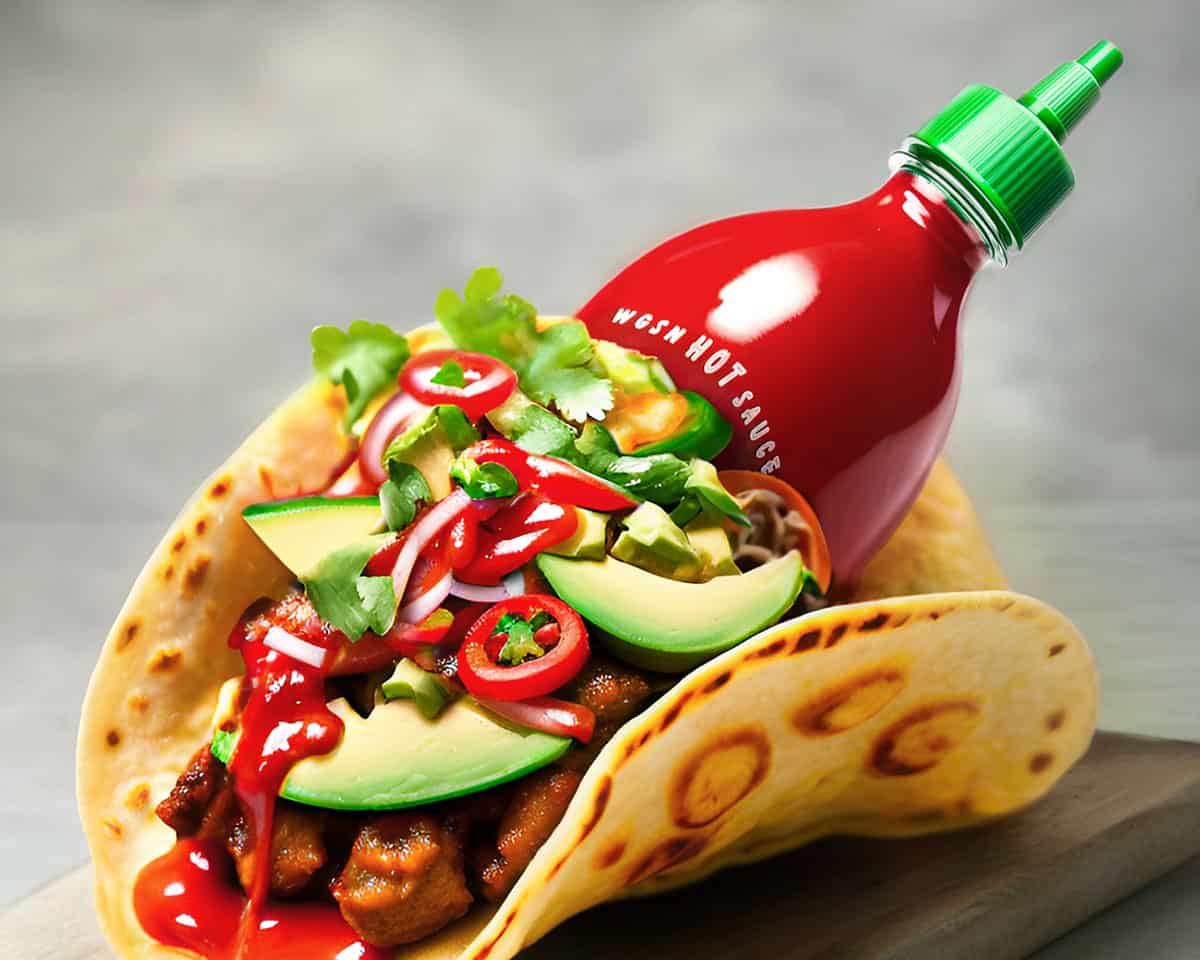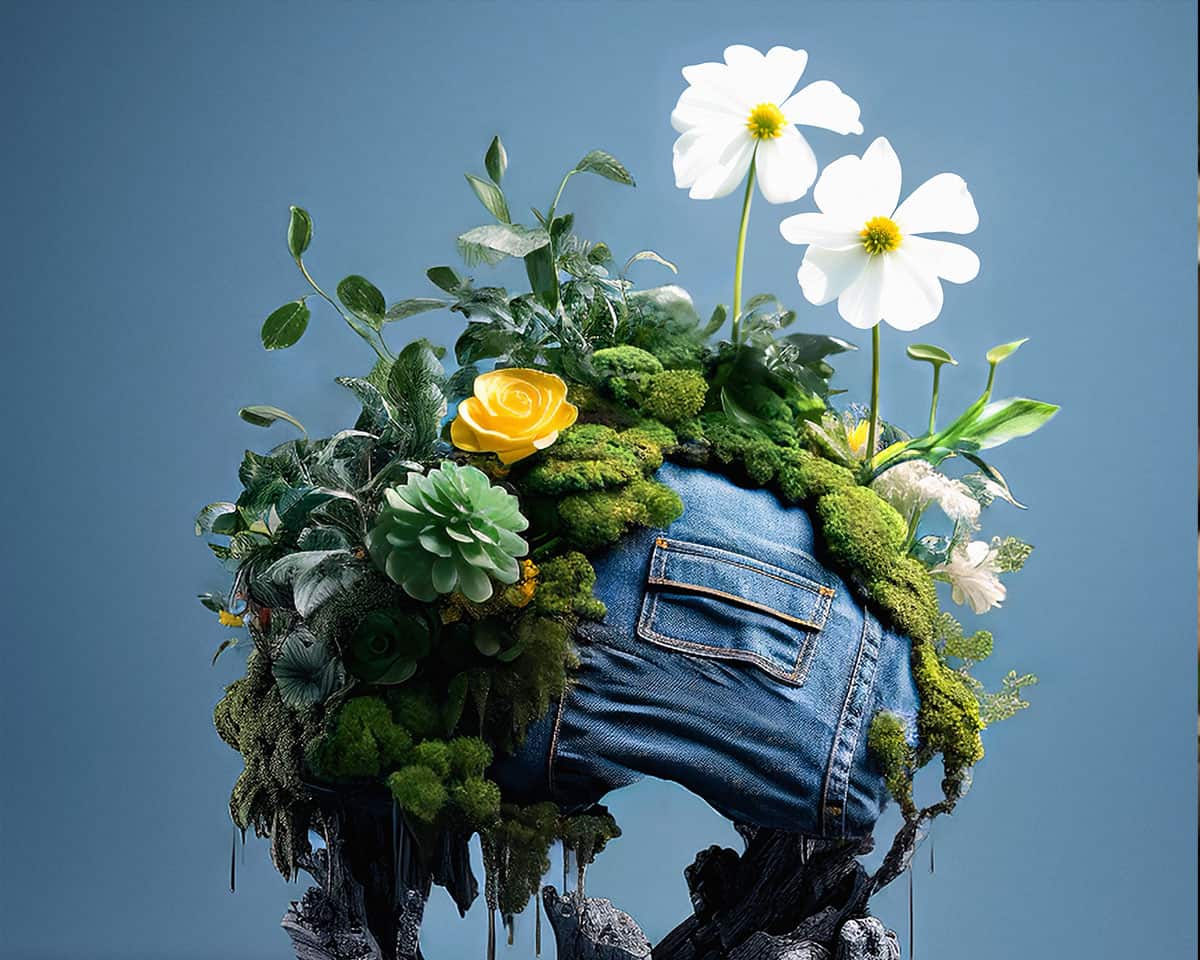WGSN DROPS TOP TRENDS FOR 2024

Global trend forecasting firm WGSN has announced its top 13 trends for 2024 and beyond. The list of the firm’s Top 13 rounds up the most notable trends from all the verticals WGSN covers, including Fashion, Consumer Behavior, Interiors, Beauty, Food and Drink, and Consumer Technology. Some are quite simple but unexpected, while others are just emerging but are very likely going to explode in the years to come. (It’s worth noting that WGSN has 25 years of trend forecasting behind them and a 90% accuracy rate.) The Top 13 trends, below, are each accompanied by compelling AI visuals, courtesy of WGSN.
Thrift Dult
Office dressing gets turned on its head for this trend, which rejects traditional work fashion personas and fuses together personal style and professional identity for a fresh, playful spin on nine-to-five dressing.
Multi-Species Living
Homes that accommodate all species respond to an emerging nontraditional family, from the plants in our living rooms to the pets on our beds and the kombucha brewing in the kitchen.
Plant Milking
The end of abundance and the need for alternative ingredient sourcing will drive a revolution in sustainable beauty. Plant milking will emerge as one solution.
Third Culture Cuisine
Globalization is giving rise to a wave of third-culture chefs, whose food is a mix of inherited culinary traditions and the food cultures they were raised with or work in.
Meals as Drinks
As demand for more savory tastes and new sensorial experiences rises, mixologists are embracing bitterness, spice, and salinity, and are using classic meal profiles for drink flavors with umami deliciousness.
Backyard Beauty
As sustainability shifts focus to preservation, soil will be recognized as a vital resource to be protected and replenished.
Apricot Crush WGSN’s Colour of the Year for 2024
Apricot Crush will appeal to consumers grappling with the huge range of emotions and feelings that link to a deep sense of uneasiness about the future.
Curtains
After years of devotion to the window, consumers will start to seek out curtains once again.
Social learning
Social learning spaces combine collective experiences with opportunities for education.
AI co-creation
The rapid evolution of generative AI (GenAI) has impacted how digital products are designed and built while enabling people to become content creators by lowering barriers to entry.
Auto-tainment
In a future where transportation time will equate to free time, consumers will seek to use their cars for work, rest, and play.
AI assistants
AI tools are supporting consumers with the chores they don’t want to do.
Biodegradable denim
With more than 2bn pairs of jeans created globally every year, the need to deal with mountains of apparel waste demands diverse solutions.
WGSN’s Fashion-specific trends include:
Prepare-wear
Global volatility and unstable weather conditions are combining to generate a backdrop of uncertainty that continues to push survivalist themes further into the fashion mainstream. Prepare-wear updates popular gender-inclusive outdoor items as adaptable, durable lightweight packable fashion pieces fit for any eventuality. Think clothing with quick-release buckles and fastenings, or inflatable protective hoods that provide a makeshift pillow on the airport floor. At the extremes, adventure specialists such as the UK’s Vollebak are now enabling wearers to evade infrared cameras, while in the mainstream GPS tracking capabilities in garments will start to hold more appeal. The temperature-regulating X-1 Smart Heated Vest from US brand Carhartt analyses its wearer’s temperature in real-time and can activate a built-in heating function automatically, based on changes in the wearer’s environment and their activity levels. With extreme weather and societal disruption increasingly a lived reality for many, prepare-wear begins to become a wardrobe necessity.
Beach-to-business shirt
Womenswear consumers will capitalize on cabin-bag-friendly clothing in 2024 by investing in the beach-to-business shirt. Travel is a key priority for purchasing, having risen in the UK (+4ppt) and the US (+2ppt) this summer, along with purchasing for work (+2ppt UK and +1ppt US; WGSN Barometer consumer survey data). Casual and special occasion end-uses declined. The beach-to-business shirt fulfills both consumer briefs, offering fuss-free versatility. Key buys will be crease-free, modular, and packable to appeal to the customer looking for multiple-wear value before they will green-light an item into that ever-shrinking cabin bag. Best buys will be fit for wearing on the journey as well at the destination, so the beach-to-business shirt is at its best when it can work just as effortlessly as a relaxed swimwear cover-up as it does over smart trousers or twinned as a matching set in the office.
Thrift-dult
Office dressing gets turned on its head for this trend, which rejects traditional work fashion personas and fuses together personal style and professional identity for a fresh, playful spin on nine-to-five dressing. Key to this look is the mixing of the thrifted and the new via eclectic DIY styling and craft-led customization. Style-aware thrift-dulters use their brand-new buys to pull this vision together with a fashion twist, making sure each purchase can take them from client meetings to midweek drinks. The look has all the hallmarks of nonconformity and inclusivity you would expect from Gen Z, with gender-inclusivity central. Blazers, pinstripes, ties, and ’80s shoulder pads form the basis of thrift finds, while reworked and twisted tailoring offers a high-fashion take on city dressing for a new generation.
Biodegradable denim
With more than 2bn pairs of jeans created globally every year, the need to deal with mountains of apparel waste demands diverse solutions. While the fashion industry continues to make progress in moving to a circular model, starting the journey to recycle more of the garments it creates this figure still only accounts for around 1% of clothing, so it will still be essential to enable fashion waste to safely biodegrade in natural environments. In 2024, Turkish denim mill specialist Calik Denim is launching a coating for jeans that will enable over 99% of the garment to biodegrade in nature in just 210 days. Italy’s Candiani Denim has launched a biodegradable stretch denim using its patented plant-based Coreva technology, whose rubber-like stretch replaces oil-based fibers.














